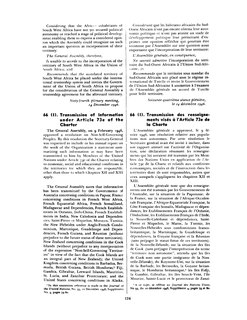
The International System of Units is the modern form of the metric system, and is the most widely used system of measurement. It comprises a coherent system of units of measurement built on seven base units, which are the ampere, kelvin, second, metre, kilogram, candela, mole, and a set of twenty prefixes to the unit names and unit symbols that may be used when specifying multiples and fractions of the units. The system also specifies names for 22 derived units, such as lumen and watt, for other common physical quantities.
The Academy Award for Best Picture is one of the Academy Awards (Oscars) presented annually by the Academy of Motion Picture Arts and Sciences (AMPAS) since the awards debuted in 1929. This award goes to the producers of the film and is the only category in which every member of the Academy is eligible to submit a nomination and vote on the final ballot. Best Picture is the final award of the night and is considered the most prestigious honor of the ceremony.

The 1960 Summer Olympics, officially known as the Games of the XVII Olympiad, was an international multi-sport event that was held from August 25 to September 11, 1960, in Rome, Italy. The city of Rome had previously been awarded the administration of the 1908 Summer Olympics, but following the eruption of Mount Vesuvius in 1906, Rome had no choice but to decline and pass the honour to London.
A decade is a period of 10 years. The word is derived from the Ancient Greek: δεκάς, translit. dekas), which means a group of ten. Other words for spans of years also come from Latin: biennium, triennium, quadrennium, lustrum, century, millennium.
The 1960 Summer Olympics medal table is a list of National Olympic Committees ranked by the number of medals won during the 1960 Summer Olympics, held in Rome, Italy from August 25 to September 11, 1960. A total of 5,338 athletes from 83 countries participated in these Games, competing in 150 events in 17 sports. The bronze medal Iraq's Abdul Wahid Aziz won in men's lightweight weightlifting is the only Olympic medal Iraq has ever won, currently the longest drought for any country who has won at least one Olympic medal.
This is a list of the number one hits in the UK Albums Chart, from its inception in 1956 to the present. The sources are the Record Mirror chart from 1956 to the end of 1958, the Melody Maker chart from November 1958 to March 1960, the Record Retailer chart from March 1960 to March 1972 and the Music Week chart from then onwards. In January 1989 the compilation album chart started, and compilation albums were excluded from the main chart.

The United Nations list of Non-Self-Governing Territories is a list of places that the United Nations General Assembly deems to be "non-self-governing" and subject to the decolonization process. Chapter XI of the United Nations Charter embodies a "Declaration on Non-Self-Governing Territories" which declares that the interests of the occupants of dependent territories are paramount and requires member states of the United Nations in control of non-self-governing territories to submit annual information reports concerning the development of those territories. Since 1946, the General Assembly has maintained a list of non-self governing territories under member states' control. Since its inception, dozens of territories have been removed from the list, typically when they attained independence or internal self-government, while other territories have been added as new administering countries joined the United Nations or the General Assembly reassessed the status of certain territories.

"Itsy Bitsy Teenie Weenie Yellow Polkadot Bikini" is a novelty song telling the story of a shy girl wearing a revealing polka dot bikini at the beach. It was written by Paul Vance and Lee Pockriss and first released in June 1960 by Brian Hyland, with orchestra conducted by John Dixon. The Hyland version reached number one on the Billboard Hot 100, selling a million copies in the US, and was a worldwide hit. The song has been adapted into French as "Itsy bitsy petit bikini" and into German as "Itsy Bitsy Teenie Weenie Honolulu-Strand-Bikini", reaching number one on national charts in both languages. Several versions of the song have proved successful in various European countries. In 1990 a version by British pop band Bombalurina, titled "Itsy Bitsy Teeny Weeny Yellow Polka Dot Bikini", reached number one on the UK Singles Chart and in Ireland.
The Official Albums Chart is a list of albums ranked by physical and digital sales and audio streaming in the United Kingdom. It was published for the first time on 22 July 1956 and is compiled every week by the Official Charts Company (OCC) on Fridays. It is broadcast on BBC Radio 1 and published in Music Week magazine, and on the OCC website.

"Stay" is a doo-wop song written by Maurice Williams and first recorded in 1960 by Williams with his group the Zodiacs. Commercially successful versions were later also issued by The Hollies, The Four Seasons and Jackson Browne.

"Karma Chameleon" is a song by English band Culture Club, featured on the group's 1983 album Colour by Numbers. The single spent three weeks at number one on the US Billboard Hot 100 in early 1984, becoming the group's biggest hit and only US number-one single among their many top 10 hits. The sleeve features work from the photographer David Levine.

"Why" is a hit song recorded by Frankie Avalon in 1959 that went to No. 1 on the U.S. Billboard Hot 100 chart published on the week of December 28, 1959, for the week ending of January 2, 1960, making it the last No. 1 single of the 1950s, and the first No. 1 single of the 1960s at the same time. It also became the first No. 1 single of the 1960s on the Cashbox magazine charts. The song was written by Avalon's manager and record producer Robert "Bob" Marcucci and Peter De Angelis. It was Avalon's second and final No. 1 hit.

"Streets of Philadelphia" is a song written and performed by American rock musician Bruce Springsteen for the film Philadelphia (1993), an early mainstream film dealing with HIV/AIDS. Released as a single in 1994, the song was a hit in many countries, particularly Canada, France, Germany, Ireland and Norway, where it topped the singles charts.

"San Francisco " is an American pop music song, written by John Phillips of The Mamas & the Papas, and sung by Scott McKenzie. The song was produced and released in May 1967 by Phillips and Lou Adler, who used it to promote their Monterey International Pop Music Festival held in June of that year.
"(Now and Then There's) A Fool Such as I" is a popular song written by Bill Trader and was published in 1952. Recorded as a single by Hank Snow it peaked at number four on the US country charts early in 1953.

"It's Now or Never" is a ballad recorded by Elvis Presley and released as a single in 1960.

Auberge de France refers to two auberges in Valletta, Malta. They were both built in the 16th century to house knights of the Order of Saint John from the langue of France, which induced the entire Kingdom of France except for Auvergne and Provence which were separate langues.











